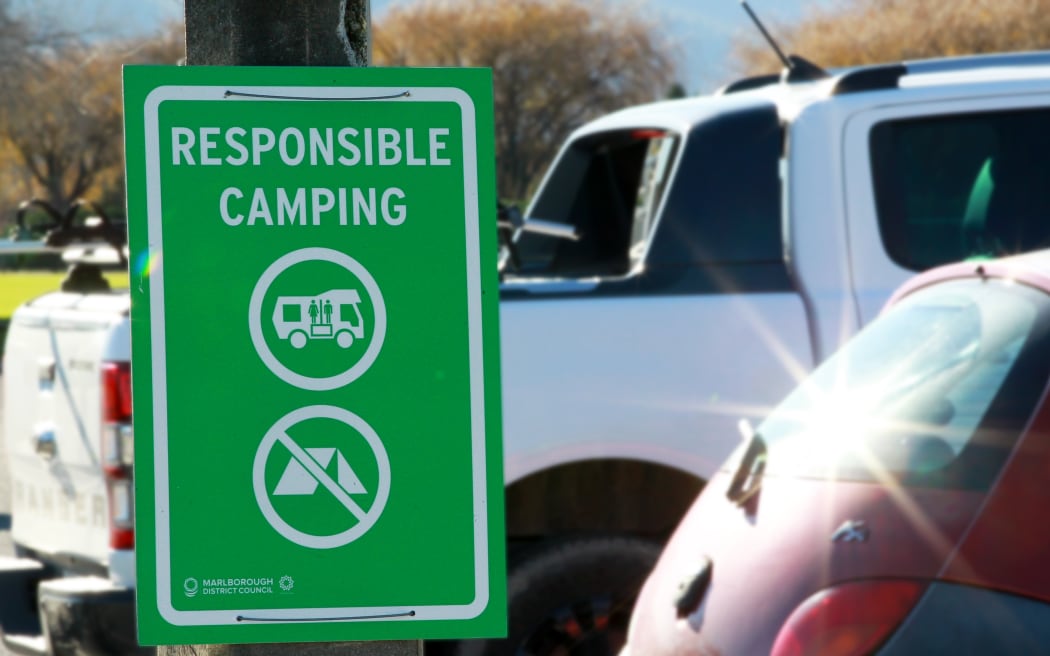On Tuesday Parliament put aside contesting this year’s budget to move two bills through their third and final readings. Both will now become law once signed off by the Governor General.
Here are a few details about each bill.

Photo: LDR / Chloe Ranford
Bill one: Fixed loos for twos
The Self Contained Motor Vehicles Legislation Bill has a slightly unhelpful name. It sounds like it is about autonomous cars or unsocial busses. It is not. It requires vehicles being used for freedom camping (in some locations) to have a fixed toilet. That’s ‘fixed’ as in bolted to the floor, rather than ‘not broken’.
Until now a vehicle might be considered self-contained if it carried a portable loo – even if it was impractical to employ the toilet without first folding up the bed (personal experience) and even packing and ‘over-boarding’ most of the luggage.
Spending a penny on the fly will now require the higher price of a properly fixed and approved toilet.
This law is the delayed result of a slow-summer-news campaign of outrage about defecating tourists (three to four years ago). The time-lag demonstrates how long it can take to turn non-emergency demands for action into workable law. Some responses to the Bill may also indicate that by the time a law has been written in response to popular outrage, people may have forgotten what they demanded and why.
The Bill was passed with support from Labour and Te Pāti Māori. National, ACT and the Greens were opposed to the Bill (for different reasons). For National and ACT the main sticking point was the demise of portable toilets (which were the status quo when councils began complaining about excremental parking areas).
“National's happy to stand up for those responsible New Zealanders and say that there should be no difference at all between having a fixed toilet and a non-fixed toilet, because here's the stupid thing about this legislation: if you have a fixed toilet and you go camping and you don't use it, you're not breaking the law; but if you have a portable toilet in your campervan and you do use it, you are breaking the law. That's ridiculous.” – Todd McLay.
National’s Sam Uffindel had an easy solution. He announced an inclination to “go off and do the sneaky,” crapping in the bushes.
Green opposition was a combination of unease about the desire for ‘high value’ tourists, antipathy to any growth in tourism, and a desire for more public toilets (something everyone was hopeful for but not a decision for central government).
The Bill is a little more complex than it sounds as Labour’s Naisi Chen pointed out.
“The Bill defines freedom camping as ‘staying in a vehicle or tent within 200 metres of a place where you can drive the coast or a Great Walks Track.’ Now, this is the point that I really want to drive home — pun intended — to a lot of our freedom campers, and especially a lot of our submitters to the select committee: it does not include camping on private land, back-country areas, or where payment is required for the site. Once again, there has been a lot of misinformation to do with this bill.”
Naisi Chen’s driving pun was probably the only one that wasn’t scatalogical in a debate that included a wide variety of puns, metaphors and euphemisms, some apparently accidental.
Unusually, the debate also included an opening speech (read on behalf of the Tourism Minister by Kiri Allan), that had clearly been written for the second reading debate instead of the third. Some confused staffer was surely in trouble come Wednesday.
Bill two: Family Court judges get associates
The Family Court (Family Court Associates) Legislation Bill was widely supported. It is another measure aimed at easing the backlog and of work at the Family Court (along with work to prevent vexatious litigation).
The Bill helps out Family Court judges by creating a new Associate role, sharing aspects of the judges’ workload. The associates will be experienced lawyers adding their own heft to budging the wheels of justice.
Employing some judicial helpers might sound like an easy task to achieve – surely place a few job ads and hey-presto. Apparently not.
Creating associates with the appropriate rights and powers was legally complex enough that this bill was an omnibus bill – one that amends numerous other extant laws. Twelve different Acts will now be amended by it.
The Family Court bill will take effect as law immediately it has received the imprimatur of the King’s local stand-in (the Governor General).
The freedom camping toilet law has a warm-up period of up to six months before it becomes law. Just in time for summer.


